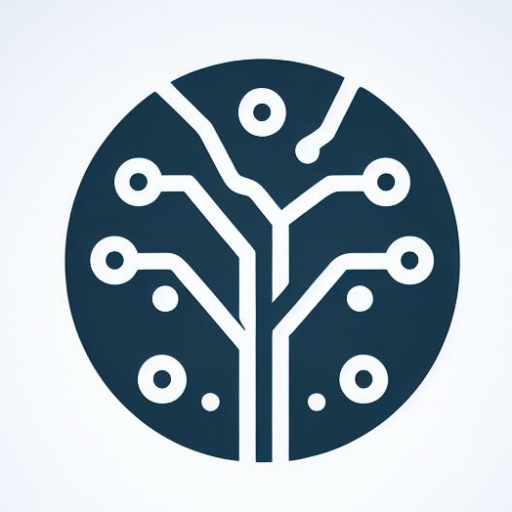Canada, a global leader in AI research, now faces a pivotal moment: will it lead the next wave of AI-driven innovation—or fall behind? Scaling with purpose is no longer optional. To remain competitive, Canadian businesses must move beyond experimentation and adopt structured, strategic approaches. Mirabilis AI offers a clear path forward.
The state of AI in Canadian business
Canada excels in research and innovation, yet companies hesitate to fully embrace AI. A 2025 Deloitte Canada report highlights a concerning trend: only 26% of Canadian companies have successfully implemented AI, falling behind the global adoption rate of 34%. This gap signals not just a slower uptake but a widening divide between Canada and nations accelerating AI integration at scale.
The consequences are already visible. Canada’s ranking in the Global AI Index has dropped from 4th in 2021 to 8th in 2024, raising concerns about the country’s ability to remain competitive in an AI-driven economy. If this trend continues unchecked, Canada risks losing its foothold as an AI powerhouse—potentially forfeiting up to $200 billion in economic growth over the next decade.
Beyond the numbers, a deeper issue emerges: despite leading in research and innovation—with institutions like Mila, Vector, and Amii—Canada struggles to convert academic breakthroughs into widespread business adoption. Structural barriers—from talent shortages to regulatory uncertainty—must be addressed if Canada hopes to reclaim its leadership in AI adoption.
Government strategy: supporting commercial AI adoption
The Pan-Canadian Artificial Intelligence Strategy (Phase II) focuses on accelerating AI adoption in the private sector. It is built on three pillars:
- Commercialization: Through innovation clusters like Scale AI, the government is helping businesses integrate AI into supply chains, manufacturing, and logistics.
- Standards: The Standards Council of Canada is developing national AI standards to ensure safety, interoperability, and trust.
- Talent and Research: CIFAR and Canada’s national AI institutes (Mila, Amii, Vector) are training the next generation of AI professionals and supporting applied research.
This strategy is backed by over 400 million dollars in federal funding between 2021 and 2026.
AIDA: regulation with high stakes
The Artificial Intelligence and Data Act (AIDA), introduced as part of the Digital Charter Implementation Act, 2022, is Canada’s first attempt to regulate high-impact AI systems. It aims to ensure that AI technologies are developed and deployed responsibly, with a focus on:
- Risk management: Businesses must assess and mitigate risks related to harm, bias, and misuse.
- Transparency: Companies must provide clear documentation on how their AI systems work and what data they use.
- Accountability: Organizations are responsible for the outcomes of the AI systems they control.
While the intent is to protect Canadians, many business leaders argue that AIDA, in its current form, lacks clarity. Terms like “high-impact system” remain vague, and the compliance burden could disproportionately affect startups and SMEs. Without clearer guidance and streamlined enforcement, AIDA risks slowing down innovation rather than enabling it.
Barriers to adoption
Despite growing interest, several structural barriers persist:
- Risk aversion: Many firms hesitate to invest without clear ROI.
- Commercialization gap: Canada excels in research but struggles to bring innovations to market.
- Public trust: Canadians remain wary of AI’s impact on jobs, privacy, and fairness.
The road ahead with Mirabilis AI: scaling with purpose
To unlock AI’s full potential, Canadian businesses must move beyond experimentation and embrace structured, strategic approaches that enable scaling with purpose. Mirabilis AI offers a clear path forward through two complementary solutions:
The Aii Methodology: The Aii Methodology is a structured framework designed to guide organizations in integrating and deploying AI. It provides a systematic approach for evaluating opportunities, planning strategic initiatives, executing AI-driven solutions, and continuously optimizing their performance. By integrating key principles such as data integrity, governance precision, and alignment with business objectives, the Aii Methodology ensures that AI transformation is sustainable, controlled, and effective. CLICK HERE now to get your copy.
Captain Aii: Captain Aii is an AI agent—built on the Aii Methodology—providing you with personalized answers on how to integrate and deploy AI in your organization. Whether you are just beginning your AI adoption or refining an established strategy, Captain Aii guides you at every stage, helping you navigate technological, ethical, and managerial challenges. Take advantage of Captain’s extensive expertise at no cost for a limited time—ACCESS NOW.
Final thought: Canada’s AI moment Is now
AI is already transforming industries. The question isn’t if it will reshape the economy—but how Canada will respond. Will the country lead the AI revolution—or watch from the sidelines? The time to act is now. To remain competitive, businesses must move beyond experimentation and embrace structured, strategic approaches—scaling with purpose to drive sustainable innovation.
Don’t hesitate to CONTACT US for expert guidance on integrating AI into your organization. At Mirabilis AI, we envision a future where AI is democratized and accessible to businesses of all sizes and sectors—empowering you to innovate, optimize, and lead with confidence. Take the first step toward your AI transformation today.
Sources: Deloitte Canada, 2025 AI Adoption Report
Ontario Securities Commission, 2023 AI Mentions in Financial Disclosures
Government of Canada, Pan-Canadian Artificial Intelligence Strategy
Innovation, Science and Economic Development Canada, Artificial Intelligence and Data Act (AIDA)
Wealth Professional (WP), As Canadian CEOs beat peers in AI adoption, OSC report reveals a worrying trend
The Aii Methodology is also available in French.
Image generated with Designer.




Leave a Reply